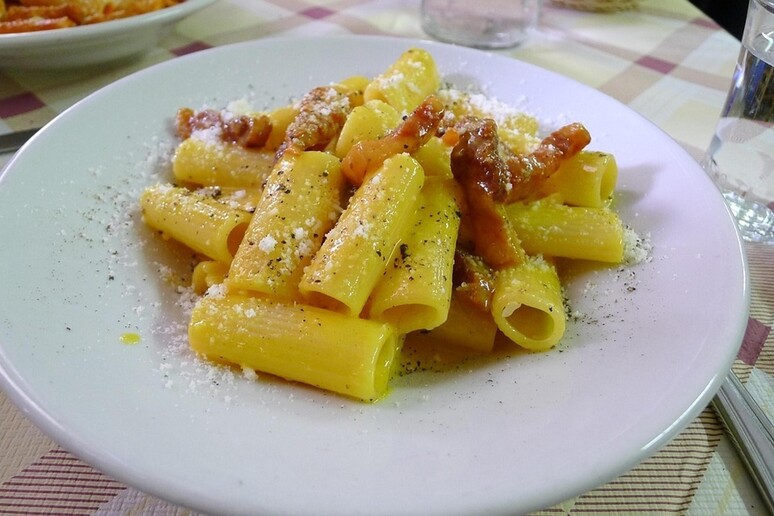Italy's culinary delight spaghetti or
rigatoni alla carbonara has been hit by steep price hikes, farm
group Coldiretti said on International Carbonara Day Thursday.
The price of spaghetti and the other possible pastas used in the
iconic dish has risen by 20% on a year ago while eggs are up
22%, pecorino cheese and pork cheek up 9%, and black pepper up
8%.
Coldiretti said "the problems caused by the price hikes are
exacerbated by the foreign mangled versions that undermine the
true recipe of one of the symbolic dishes of Italian cuisine
that has been candidated for an UNESCO citing.
"The result is that pasta alla carbonara served in other
countries' restaurants is falsified in almost three cases in
four, 74%".
In brighter news, Coldiretti said pasta exports were up.
Exports of Italian pasta have risen "significantly" after the
COVID emergency, it said.
Pasta sales in Italy are also up, it said.
The export boom is however fed by "fake" versions of Carbonara,
such as the culinary crime of adding cream that originated in
Belgium, or the smoky bacon version recently publicised in the
New York Times, Coldiretti said.
As well as committing the offence of using bacon instead of
guanciale (cured pig's cheek or pork tongue), as per the
original recipe, the US version also employs Parmesan, the bogus
clone of Parmigiano Reggiano, instead of the recommended
Pecorino Romano, Coldiretti said.
This proliferation of sub-par imitations of classic Italian food
products is helped by the lack of clear, government protected
recipes, the farmers' association said.
Italian traditionalists insist there are only five carbonara
ingredients: pork tongue, pecorino, eggs, salt and pepper.
Innovators think that, since pasta is such a versatile dish,
there should be no limits on how carbonara can be interpreted,
going as far as "culinary science fiction", according to
detractors.
In France and Germany, for example, powdered ingredients are on
sale for preparing a carbonara; in Britain the egg is often
replaced by bechamel sauce; and in Japan chefs regularly add
cream and take out the pecorino - an affront to tradition
according to purists.
As with many recipes, the origins of the dish and its name
are obscure.
There are many theories for the origin of the name, which may be
more recent than the dish itself.
Since the name is derived from carbonaro (the Italian word
for charcoal burner), some believe the dish was first made as a
hearty meal for Italian charcoal workers.
In parts of the United States the etymology gave rise to the
term "coal miner's spaghetti".
It has even been suggested that it was created as a tribute
to the Carbonari ("charcoalmen"), a secret society prominent in
the early, repressed stages of Italian unification.
It seems more likely that it is an urban dish from Rome,
probably first described after WWII in the Italian capital, when
many Italians were eating eggs and bacon supplied by troops from
the United States.
This lat theory was recently repeated by the Financial Times in
an article that enraged Coldiretti by branding carbonara as
"American" while also claiming that other Italian food classics
like panettone and tiramisù were "recent inventions".
#CarbonaraDay was set up by the International Pasta
Organization (IPO) and the Association of Pastry and Pasta
Makers (AIDEPI) to fete this culinary glory and try to settle
some of the vexed questions about how to make it.
ALL RIGHTS RESERVED © Copyright ANSA











